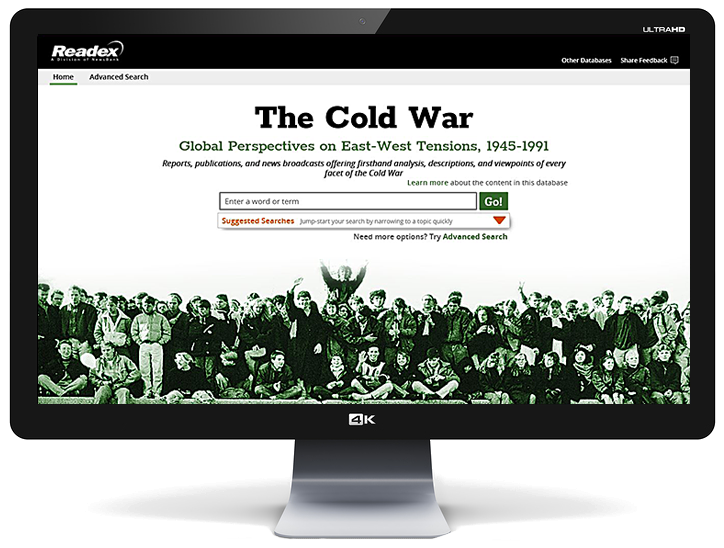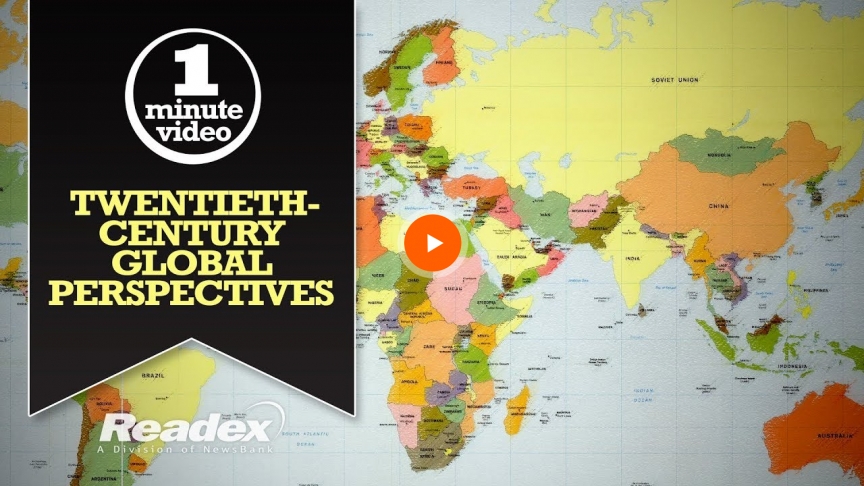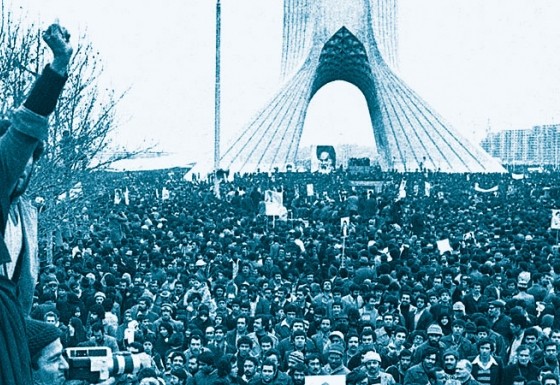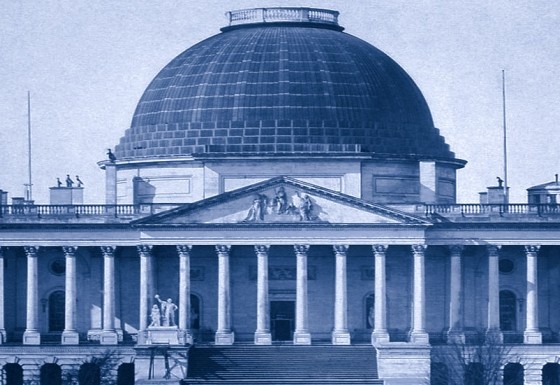From the end of World War II to the early 1990s, the Cold War was the central driving force in global politics. In addition to nuclear arms races and shifting military alliances, the Cold War years had a critical impact on many of today’s most intriguing research topics, from technology to terrorism, immigration to international politics. No other resource but The Cold War: Global Perspectives on East-West Tensions, 1945-1991, brings together primary source documents from around the world to shed new light on this crucial period in world history.
A one-of-a-kind archive for Cold War studies, geopolitics and more
Beginning in the 1940s, a U.S. government organization that became part of the CIA monitored, recorded and translated any item related to the Cold War from foreign mass media and government publications. The scope of this effort was vast: over time it covered newspapers, magazines, radio broadcasts, television broadcasts and more from every corner of the world. Now, these documents are together in a fully searchable digital archive that makes the Cold War come alive to researchers from a variety of disciplines. Because the archive also includes analysis of important events and issues, it allows researchers to dive deep into global trends and discover shifts in tone that may have led to changes in international alliance and strategic intentions. In addition, the interface enables students and scholars to easily browse the collection by a broad range of topics, each providing highly relevant results for users at all levels.
New perspectives on 20th-century world history
The Cold War wasn’t just a long-simmering dispute between the United States and the USSR, two of the world’s greatest superpowers. It also encompassed the rise of communism in mainland China, the Cuban missile crisis, the Korean War and more. The Cold War: Global Perspectives on East-West Tensions provides a glimpse into these and many other global events through the eyes of the people who experienced them firsthand. The collection also provides international perspectives on the formation of NATO, the death of Joseph Stalin, the rise of space exploration, the Arab-Israeli conflict, the Vietnam War, the development of the European Union and regional history in Africa, the Caribbean and elsewhere.
An essential research tool
The Cold War: East-West Tensions, 1945-1991, is a crucial research tool for anyone interested in 20th-century global studies. Students and researchers in the humanities, history, political science, military history, religion, women’s studies and more will find this collection indispensable, as will scholars looking for insight on the roots of many of today’s most pressing issues and events. The world we live in today—its technology and tensions, its political boundaries and environmental concerns—stems from the events that unfolded during the Cold War.
20th-Century Global Perspectives
In addition to The Cold War: Global Perspectives on East-West Tensions, 1945-1991, closely related collections—also from the Archives of the Central Intelligence Agency—include Apartheid: Global Perspectives, 1946-1996; Immigrations, Migrations and Refugees: Global Perspectives, 1941-1996; American Race Relations: Global Perspectives, 1941-1996; and Middle East and North Africa: Global Perspectives, 1958-1994.



























